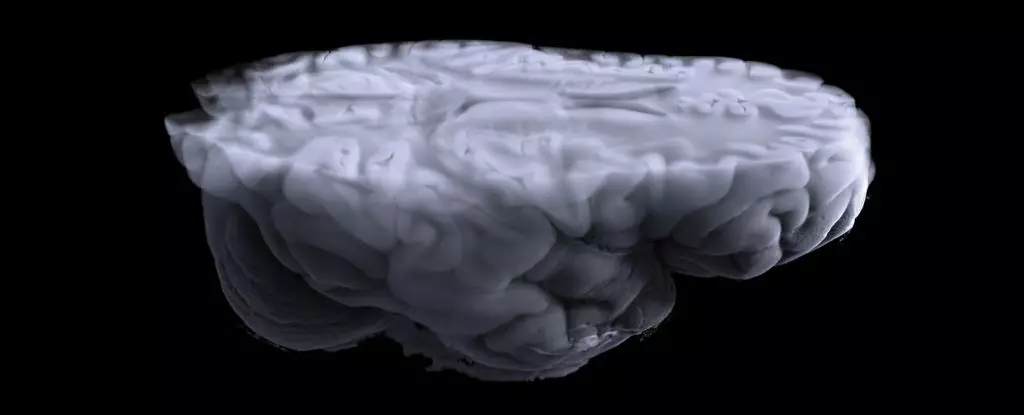The functions of the ovaries extend far beyond just reproduction. These oval-shaped glands not only produce and release eggs but also play a vital role in hormone regulation. These hormones are crucial in maintaining the health of the heart, bones, brain, and immune system as individuals age.
A recent brain imaging study has raised concerns about the long-term health consequences of surgical removal of both ovaries. The study, which included data from over 1,000 females over the age of 50 in the US, found that those who had both ovaries removed before the age of 40 showed reduced white matter in various parts of the brain compared to those who had not undergone the same procedure. Participants who had the surgery after age 40 also showed decreased white matter integrity, although to a lesser extent. These changes resembled vascular brain disease, indicating early Alzheimer’s disease pathology.
Studies have shown that individuals who undergo bilateral oophorectomy before reaching menopause face a higher risk of cognitive impairment and dementia later in life. However, the underlying reasons for this increased risk have not been fully understood. Researchers have noted that only a tiny fraction of brain imaging studies consider the impact of sex hormones, such as those produced by the ovaries, on brain health and development. Testosterone, although traditionally viewed as a male hormone, is also produced by the ovaries and plays a crucial role in the female body. Studies have shown that testosterone is linked to white matter integrity in the brain, and its sudden loss due to ovarian removal before menopause could have negative effects on brain development.
There is an ongoing debate among scientists about the risks and benefits of removing the ovaries for non-cancerous conditions and at what age it is safest to do so. While the ovaries must be removed in cases of cancer to save the patient, bilateral oophorectomies are also commonly performed to treat conditions such as endometriosis, ovarian cysts, and non-cancerous fibroids. In the US, over half of individuals undergoing a hysterectomy have both ovaries removed, with a significant portion of them being under the age of 44. Recent evidence suggests that the risks and benefits of ovarian removal at a young age may not always be adequately evaluated by surgeons or patients. For children and adolescents, removing both ovaries for benign conditions may be unnecessary and come with lifelong risks, including early menopause and increased susceptibility to chronic health conditions.
Removing both ovaries during the reproductive years can lead to early menopause and increase the risk of severe chronic health conditions such as bone density loss, impaired sexual health, cardiovascular disease, cognitive impairment, sleep apnea, and arthritis. Therefore, there are several reasons why it is essential to spare the ovaries whenever possible, with protecting the brain from potential harm being just one of them.
The ovaries play a crucial role in the overall health and well-being of female-bodied individuals. The decision to remove the ovaries should be carefully considered, weighing the potential benefits against the risks of long-term health consequences. Further research is needed to fully understand the impact of ovarian removal on brain health and cognitive function, and to ensure that individuals receive the most appropriate treatment based on their specific needs and circumstances.


Leave a Reply